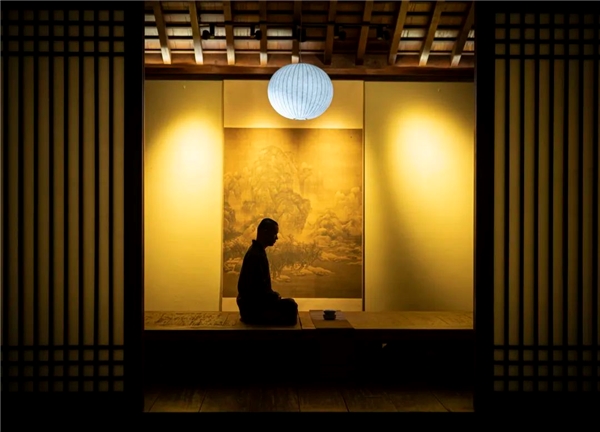
In Chan Buddhism, the parable of “herding cows” is used to illustrate that the right way to practice Buddhism lies in a heart that remains unengaged. When Mazu asked Master Huizang, “What are you doing?” Master Huizang replied, “Herding cows.” Mazu asked how to herd them. Hui-zang answered, “When a cow strides into the crops, you immediately pull it back by the nose.” Mazu said, “You truly know how to herd cows.” To practice Buddhism, one must keep the mind unengaged, constantly reflecting and attending to the present moment. It is like herding cows: do not let the mind wander into desires; when a thought arises, pull it back immediately. The saying goes, “When a thought arises, awaken; when awakened, it ceases.”
An unengaged mind means inner reflection. When a thought clings to sense-objects, it gives rise to afflictions, i.e. birth and death. When a thought is free from sense-objects, there is no arising or vanishing, i.e. liberation. The Sixth Patriarch Huineng said: “A foolish passing thought makes one an ordinary man, while an enlightened second thought makes one a Buddha. A passing thought that clings to sense-objects is Klesa (the cause of suffering), while a second thought that frees one from attachment is Bodhi.” By applying this great wisdom, one should cut through the fetters of the five Skandhas (the five aggregates) for to follow such practice ensures the attainment of Buddhahood.

About the nature of the mind, there are two kinds. One is the true mind, which dwells in luminous, unobscured wisdom. It has no fixed substance, and its characteristic is the ultimate reality (tathata) as such. The other is deluded mind, conditioned by the six dusts and their impressions; its substance is non-abiding, and its marks are attachments and proliferating thoughts. The Treatise on the Awakening of Faith states: “If one departs from mind and thoughts, there is no trace of any realm. Therefore, all Dharmas, from their origin, depart from linguistic designation, from nominal designation, and from mind-conditioned correlations; they are ultimately equal and unmoving, with no alteration.” When one attains this absolute state, there are no obstacles anywhere. All impediments are overcome, enlightenment appears before the eyes, and all radiance shines forth. This is the unconstrained, unimpeded realm that has no rules to bind it.